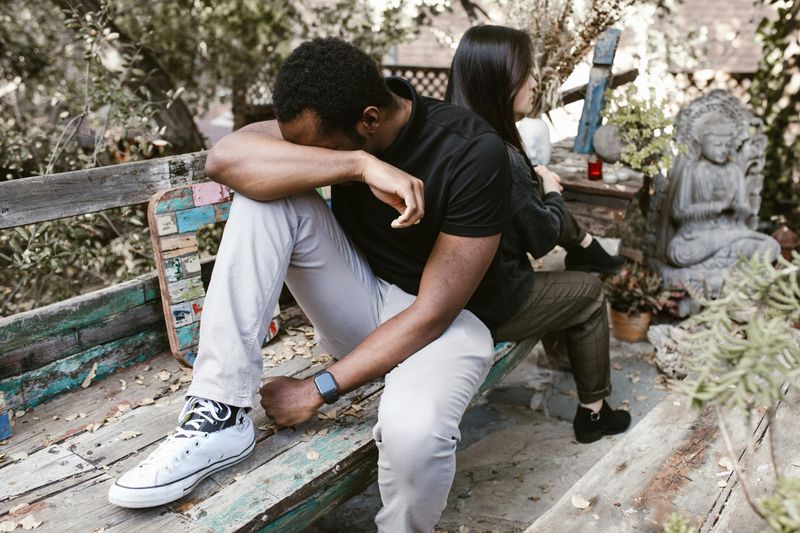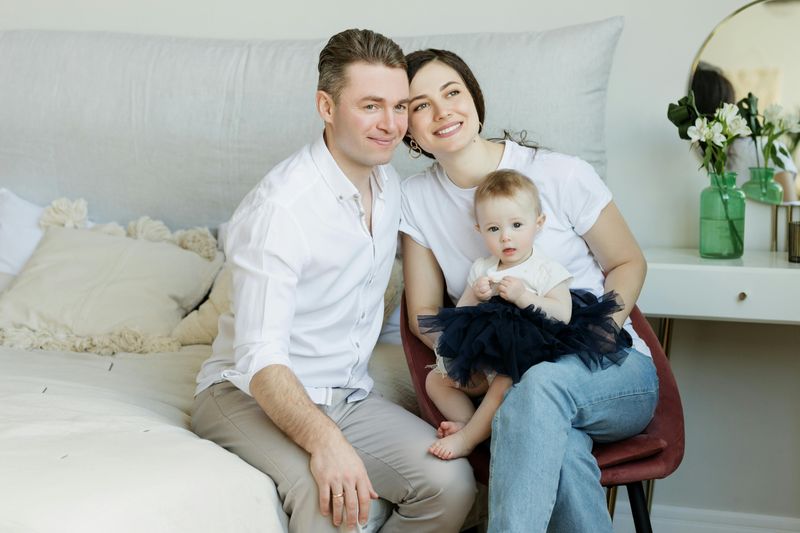Every relationship faces bumps in the road, but sometimes those bumps turn into mountains that seem impossible to climb alone. Knowing when to seek professional help can make the difference between strengthening your bond and watching it fall apart. These nine warning signs can help you recognize when it’s time to consider couples counseling before small issues become relationship-ending problems.
1. Communication Has Become a Battlefield

Talking to your partner feels like walking through a minefield. Simple conversations quickly spiral into arguments, or worse, you’ve stopped talking altogether to avoid fights. The same issues come up repeatedly with no resolution.
Healthy couples can disagree without it turning toxic. When communication patterns become destructive—filled with criticism, defensiveness, or stonewalling—it signals a deeper problem. A counselor can teach you both how to express needs clearly and listen effectively.
Many couples wait too long to address communication problems, letting resentment build until it’s almost impossible to hear each other.
2. The Same Fight Plays on Repeat

Round and round you go, having the exact same argument for the tenth time this month. Nothing gets resolved because you’re stuck in a loop of blame and defensiveness. One of you might shut down while the other pursues harder.
This repetitive cycle signals that deeper issues lie beneath the surface topics. Maybe it’s about feeling unheard, disrespected, or unloved—not actually about dishes or schedules.
A trained counselor helps identify these underlying patterns and teaches couples how to break free from their destructive dance. They provide a safe space to understand what’s really driving these conflicts.
3. Intimacy Has Left the Building

When was the last time you really connected physically? It might be hard to remember. The bedroom used to be where intimacy happened, but now it just feels like a room for sleeping.
Loss of physical intimacy often reflects emotional distance that has grown between partners. Sometimes medical issues, stress, or past traumas contribute to this problem, making it complex to address without help.
Couples therapists are trained to sensitively discuss intimacy issues and help partners rebuild both emotional and physical connections. They create a judgment-free zone where both people can express needs and concerns about this delicate aspect of relationship health.
4. You’re Living Parallel Lives

Roommates rather than lovers—that’s what you’ve become. Days pass with minimal meaningful interaction as you operate on separate schedules, pursue different interests, and rarely connect about anything important.
Healthy couples maintain their individuality while still sharing a connected life. When partners stop including each other in decisions, dreams, and daily experiences, the relationship foundation weakens.
This gradual drift happens so slowly many couples don’t notice until they feel like strangers. Counseling helps rebuild shared experiences and find balance between independence and togetherness that works for both partners.
5. Trust Has Been Broken

Something shattered the foundation of trust in your relationship. Perhaps it was infidelity, financial secrets, or broken promises. Now suspicion and doubt color every interaction, making it impossible to move forward.
Rebuilding trust requires more than just time—it takes deliberate work from both partners. The person who broke trust must demonstrate consistent reliability and transparency. The hurt partner needs support processing pain without getting stuck in resentment.
Professional counselors provide structure for this difficult healing process. They help create a roadmap for rebuilding, with clear expectations and boundaries that protect both people as trust slowly regrows.
6. Life Changes Have Created a Gap

Even the strongest bonds can feel the strain when life shifts dramatically. Whether it’s raising kids, navigating career changes, health battles, or caring for elderly family, these challenges often pull partners away from each other.
These stressors often reveal different coping styles, priorities, and expectations that weren’t obvious before. One partner might withdraw while the other becomes increasingly anxious about the relationship.
A counselor helps couples navigate these transitions together rather than growing apart. They create space to acknowledge losses, celebrate new beginnings, and develop strategies to support each other through change. Working with a professional during major life shifts can prevent temporary struggles from causing permanent damage.
7. Resentment Has Become Your Roommate

It’s crazy how little things can set you off when there’s a backlog of hurt beneath the surface. Those small annoyances? They’re really just triggering bigger wounds that never got properly dealt with.
This accumulated emotional baggage makes it nearly impossible to see your partner clearly or respond to them fairly. You’re reacting not just to current behavior but to years of perceived slights and unmet needs.
Couples therapy provides tools to safely unpack these old hurts without creating new ones. A counselor helps translate vague feelings of resentment into specific, addressable concerns and guides the healing process.
8. You’re Considering an Affair (or Having One)

Fantasizing about someone else or crossing physical boundaries signals serious relationship distress. These thoughts or behaviors don’t happen in a vacuum—they’re usually symptoms of unmet needs or unresolved problems.
Affairs don’t fix broken relationships; they complicate them. The temporary escape or validation might feel good momentarily but creates deeper wounds long-term.
Seeking counseling before acting on these impulses can help address the root causes of disconnection. Even after infidelity, therapy offers a structured environment to determine whether the relationship can be rebuilt or should compassionately end. Either way, professional guidance helps everyone process complex emotions more healthily.
9. You’re Staying “For the Kids” or Other External Reasons

The only reason you’re still together is obligation, finances, or fear of hurting others. Your relationship has become a hollow shell maintained for practical reasons rather than genuine connection or love.
Children are perceptive—they sense tension and unhappiness even when parents think they’re hiding it well. Growing up with a model of joyless partnership can shape their understanding of what relationships should be.
Couples counseling helps honestly evaluate whether the relationship can be revitalized or if a healthier separation is needed. Sometimes therapy breathes new life into seemingly dead relationships; other times, it facilitates a more amicable and thoughtful transition to separate lives.

Comments
Loading…